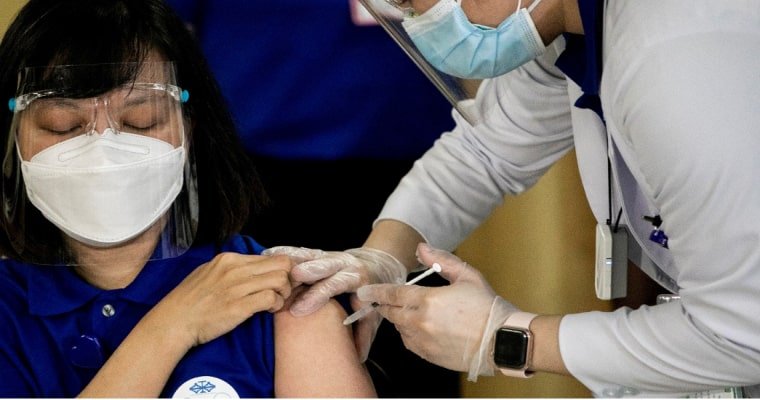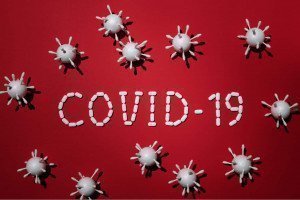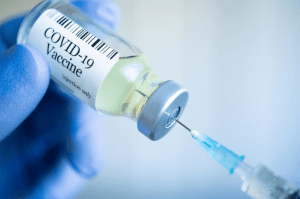The new illness of human coronavirus since the 1918 influenza pandemic, COVID-19, became the sixth pandemic reported. In Wuhan, China, COVID-19 was initially detected, then international spread. The International Committee for the Taxonomy of Viruses based on phylogenetic research formally designated the coronavirus Severe Acute Respiratory Syndrome (SARS-CoV-2). The COVID-19 is considered an animal coronavirus spillover, and the human-to-human transmission capacity has subsequently adjusted.

Photo by Miguel Á. Padriñán from Pexels
In the Philippines, the first Corona Virus patient was recorded on January 30, 2020. According to the Department of Health (DOH) Secretary Francisco Duque III, the patient was a 38-year-old lady, who arrived in the Philippines on January 21 from Wuhan, China, through Hong Kong.
Since that incident, the number of coronavirus patients started to rise.
To date, the Covid-19 virus has gone through mutations. New variants have emerged. Currently, the different COVID-19 variants are being monitored in the Philippines and throughout the world.
The Lambda Variant
More than 18 months into the Covid-19 pandemic, the world has grown accustomed to hearing about new viral variants, particularly those that have gradually overtaken prior strains of the illness.
The new variant, Lambda, is not nearly as serious as the
Delta variant in the USA, which in many cases has increased domestically, but
early investigations show it contains mutations that make it more transmissible
than the original coronaviral strain.
Some viral modifications, like the Alpha and Delta variants, identified initially in the United Kingdom and India, respectively, have proven to be more transmissible than prior variants of the virus, and have gone on to dominate internationally.
While the world is battling against the quick spread of the Delta variant, which overwhelmed the Alpha strain in terms of transmissibility and the plausibility for unvaccinated people to get hospitalized, a new variant has recently emerged, which specialists were able to screen: the Lambda variant. Lambda variant became the "variant of interest" of the individuals within the field of medicine.
Scientists raised the alarm in July about the existence of the Lambda variant, which was discovered in at least 20 nations.
On August 16, the Philippines announced its first incidence of the COVID-19 Lambda variant locally, meaning, the patient, who is a pregnant 35-year-old from Western Visayas, contracted it in the nation rather than abroad.
However, the Lambda variant, which is thought to be more resistant to vaccinations, was first identified in Peru. It is currently quickly spreading in South America, while the globe still continues to battle the extremely contagious Delta form of COVID-19.
How did it get into the Philippines, and why did it take so long for the public to learn about it?
On July 22, a 35-year-old Lambda variant patient tested positive for COVID-19 and has subsequently recovered. According to Health Undersecretary Maria Rosario Vergeire, the patient was tested for COVID-19 since she was part of a cluster of illnesses in their region.
Only after three weeks of acquiring the virus, on August 15, did the DOH identify her as a Lambda variant case.
Many are concerned that the variant instances may be unreported since the DOH only discovers them through "purposive sampling." As a result, because the DOH is unable of genome sequencing on a broader scale, it primarily collects samples from locations that are likely to contain novel variations.
How Effective Vaccines are in the Lambda Variant

In recent months, the different COVID-19 mutations have grown rapidly worldwide, including the recent growth of the Delta variant in the Philippines.
In November 2020, scientists in Peru first sequenced the new Lambda variant, also known as C.37, and since that time, it has gained its grip in the country.
According to experts, existing vaccinations are still effective against variations such as with the Delta variant. A crucial part in combating variations is the vaccination of as many individuals as possible, as quickly as possible.
Just when the coronavirus vaccines have been accessible to the public, the development of COVID-19 variants threatens to trump governments' attempts to vaccinate their citizens.
Most countries, particularly the undeveloped ones, have yet to achieve the same vaccination levels as the higher-income countries. With the restricted doses come a long path to recovery, especially with the ever-evolving virus at bay.
The explosive growth of the SARS-CoV-2 variant or the new Lambda variant with mutations conferring enhanced transmissibility or immunological escape is raising concerns regarding the protection afforded by prior infection or vaccination.
The Chile study's findings, which have yet to be evaluated by other scientists, show that the Lambda variant's spike protein "confers immunological escape to neutralizing antibodies evoked by the CoronaVac vaccination."
The study focused on healthcare professionals who got two doses of a vaccine produced by Sinovac Biotech in China.
According to a preprint from New York University's Grossman School of Medicine, Lambda's spike protein demonstrated partial resistance to neutralization of antibodies induced by mRNA vaccines such as those created by Pfizer and Moderna. It did, however, find that existing vaccinations will protect against Lambda and other variants.
In a lab trial published in July, researchers discovered some indication that patients who received the single-dose Johnson & Johnson Covid-19 vaccination may benefit from a booster dosage to better protect them from new variations of the coronavirus, including the Lambda variant. The study was conducted in the lab and does not represent the vaccine's real-world effects – and it was released online as a preprint to the server biorxiv.org, implying that it was not subjected to rigorous peer review.
“Both investigations [in the United States and Chile] indicate that neutralization by vaccinee sera is lower for Lambda variant compared to viruses from earlier in the epidemic. “These are tiny trials, and clinical extrapolation from this early evidence is difficult,” Public Health England's risk assessment stated.
Given the very small number of cases in the country, it is difficult to make firm conclusions from the information obtained, but Peru's comparative experience suggests that various vaccinations may provide quite varying degrees of protection.
Peru's immunization campaign has relied on the use of the Chinese-made Sinopharm vaccine, which is only around 79 percent efficient at preventing hospitalization. In comparison, the most frequently used Pfizer and Moderna injections in the United States are approximately 94 percent effective against hospitalization.
Preliminary evidence of the Lambda spiked protection indicates that it is more infective than the original Wuhan virus and the Alpha and Gamma versions such that cells may be infected more readily. The early tests also show antibodies produced by the Chinese biotech company Sinovac, who are getting the CoronaVac vaccination, were less effective than the Wuhan, Alpha, or Gamma version in neutralizing the Lambda spike protein.
Infectiveness is not as contagious among people. It is worth noticing. There is still not enough proof that Lambda is certainly more contagious, however, it is plausible because of the mutations.
Japanese researchers investigated the Lambda variation and discovered that changes in the virus's spike protein may have helped it withstand vaccine-induced antibodies in patients. They claim that this has contributed to it being highly infectious, allowing it to infect certain vaccinated people.
With sustained high levels of coronavirus transmission, there is a continuing possibility of new variations developing. The Lambda variant emphasizes the potential of these mutations boosting SARS-capacity CoV-2's to infect cells or disrupt current vaccinations and antibody medicines. The World Health Organization (WHO) continues to investigate the Lambda variant to see if it has the potential to become an emergent danger to global public health and a source of worry.
However, while researchers believe the Lambda variant is more contagious than the original strain of covid-19, the effectiveness of the vaccination may play a significant role in this. For the time being, the United States has recorded just 1,300 cases of the Lambda variant.
Navigate through this pandemic by upgrading your skills. Learn more at In-Demand Tech Skills You Need to Get a Job During Pandemic.
Lambda Variant Globally
The new variant Lambda has already been discovered in 29 nations, seven of which are in Latin America, and it is the prevalent strain in Peru.
The Lambda variant, also known as the C.37 strain, was initially detected in Peru in August 2020 and was declared a variant of interest by the WHO on June 15, 2021. It is common in Argentina, Brazil, Colombia, Ecuador, and Mexico, and has recently expanded to the United Kingdom.
Dr. Maria Van Kerkove, WHO Technical Lead on COVID-19, stated that the WHO is actively following this strain to see because it has now become a variant of concern.
According to the Pan American Health Organization (PAHO), the Lambda variant accounts for about 71 percent of COVID-19 cases in Peru since January 2021, and nearly 82 percent of case samples in May and June.
“Lambda has become the dominant variety in Peru in a very short period of time,” said Pablo Tsukayama, who traced the emergence of the Lambda variant in Peru with his colleagues at Lima's Cayetano Heredia University. Lambda, according to Tsukayama, is more transmissible.
In accordance with the independent GISAID data-sharing effort, the genomic sequence has identified 1,060 instances of Covid-19 in the USA caused by the Lambda variant so far. In Delta instances, which account for around 83 percent of new US cases, the number is a long cry from the spike, but Lambda is a variant that they constantly track.
All variants arise daily — assuming new mutations can be considered as variants. The question is, do these mutations offer a kind of benefit to the virus, which is naturally harmful to people? The Lambda answer is yes.
Tracking Lambda Variant in the Philippines

Source: rappler.com
On August 15, the Philippines' health ministry announced the discovery of the first case of COVID-19's Lambda variation in the nation and warned the public to rigorously adhere to basic public health standards.
On August 22, the country registered 14,749 new coronavirus cases, its second-largest day increase, bringing the Southeast Asian country's total confirmed illnesses to 1.74 million. The health department announced another 270 deaths, the third-highest one-day death rate, raising the death toll to 30,340.
It is an 'interest variation' found initially in Peru in December, which the World Health Organization defines as Lambda as having laboratory research showing that it possesses mutations resisting vaccine-induced antibodies.
In a July 28 study before the peer review, researchers warned that the new Lambda variant is a major continuing hazard since it is designated as a "variant of curiosity" rather than a "variant of worry."
Although it remains unclear if the variant mutation is hazardous in many nations more than the Delta form, senior researcher Kei Sato from the University of Tokyo believes "Lambda might pose a possible threat to human society."
On the 23rd of August, all 41 additional Lambda variant instances are local. According to the case list, 40 cases have been labeled as recovered, while one case has a result that is still being confirmed.
The DOH emphasizes that the government needs further data to justify the proclamation of community transmission of the Delta variant over the whole country. Community transmission, on the other hand, was discovered in Region IV-A and the NCR based on the following observations: 1. A large number of Delta instances; and 2. Case studies and phylogenetic analyses revealed that these cases cannot be epidemiologically connected, nor can the source/sources of infection be established. For additional locations, analysis of the most recent sequencing findings is underway to determine community transmission. However, the DOH, the national government, and the local government entities have since responded as though community transmission had already occurred.
The DOH also emphasizes that active case finding, aggressive contact tracing and testing, reducing the time between detection and isolation/quarantine, strengthened the Prevent-Detect-Isolate-Treat-Reintegrate (PDITR) strategies, vaccination, and strict adherence to the minimum public health standards are interventions in preventing the spread of COVID-19 and its variants.
We have to take preventive procedures to prevent the further spread of the current pandemic. By understanding the facts and by taking necessary measures, protect yourself and those persons around you. Follow the local health services' recommendations. Wear a mask, clean your hands, maintain a safe distance, and receive your immunization when it’s available.
Lessandra Blog is a compilation of lifestyle, community, and home-related articles. For real estate investment and tips on how to buy house and lots in the Philippines, visit Lessandra’s Lifestyle and Home Investments section. To know more about quality and affordable house and lots in the Philippines, give the property listing section a visit. Live in best, live in Lessandra.
Sources:
https://www.google.com/amp/s/www.forbes.com/sites/williamhaseltine/2021/08/10/it-is-time-to-pay-close-attention-to-the-lambda-variant-now-devastating-south-america/amp/
https://www.rappler.com/nation/philippines-first-case-covid-19-lambda-variant-august-15-2021
https://www.reuters.com/business/healthcare-pharmaceuticals/delta-infections-among-vaccinated-likely-contagious-lambda-variant-shows-vaccine-2021-08-02/
https://www.google.com/amp/s/www.news-medical.net/amp/news/20210705/Study-says-mRNA-COVID-vaccines-are-effective-against-Lambda-variant.aspx
https://www.verywellhealth.com/lambda-vaccine-resistance-5195973




